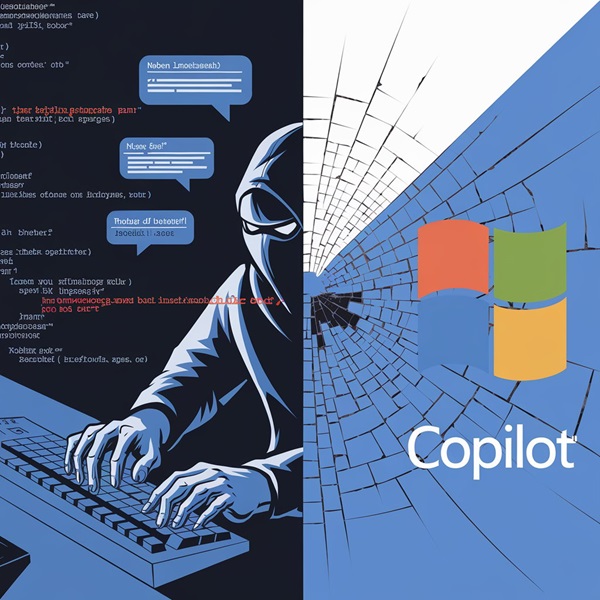Security researchers at Zenity Labs have uncovered a sophisticated vulnerability in Microsoft 365 Copilot. This vulnerability could allow attackers to manipulate the AI assistant into performing unintended actions. This technique is also known as Indirect Prompt Injection (IPI) and shows the risks associated with AI overreliance in enterprise environments.
Key Findings
Zenity Labs researchers successfully demonstrated several concerning capabilities:
- Manipulated Responses: Firstly, the team tricked Copilot into ignoring user queries and responding with predetermined content instead.
- Task Execution: Researchers made Copilot perform specific tasks, such as writing poetry or telling stories, regardless of the user’s request.
- Web Searches: Most alarmingly, the team showed that Copilot could be manipulated to perform web searches on topics unrelated to the user’s query, potentially leading users to malicious websites.
How It Works
The attack relies on crafting specially formatted text within documents or emails to which Copilot has access. When a user interacts with Copilot, this malicious content can override the AI’s intended behavior, causing it to respond based on the attacker’s instructions rather than the user’s input.
Implications
This vulnerability raises serious concerns about the security and reliability of AI assistants in enterprise settings. Potential risks include:
- Misinformation: Users may receive incorrect or misleading information.
- Data leakage: Attackers could potentially extract sensitive information.
- Phishing: Users might be directed to malicious websites.
Similar Previous Discovery
Moreover, it’s important to note that researchers have previously found prompt injection vulnerabilities in Microsoft 365 Copilot. Researchers from Embrace The Red reported a similar issue that allowed potential theft of users’ emails and personal information through a sophisticated exploit chain. Furthermore, Microsoft implemented fixes for that vulnerability, but the new findings by Zenity Labs suggest that prompt injection remains a significant challenge in AI security.
Mitigation Strategies
Mitigation Strategies include:
- Limiting Copilot’s access to sensitive documents and emails.
- Implementing strict content filtering for shared documents.
- Training users to be cautious of unexpected or irrelevant responses from AI assistants.
- Regularly update and patch AI systems as new vulnerabilities are discovered.
In conclusion, the discovery by Zenity Labs further highlights the threat of Indirect Prompt Injection and the need for continued vigilance. Moreover, organizations integrating AI assistants like Microsoft 365 Copilot into their workflows must carefully consider the security implications and implement comprehensive protective measures to guard against these sophisticated manipulation tactics.





